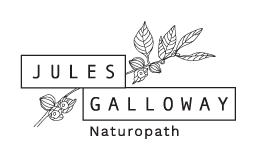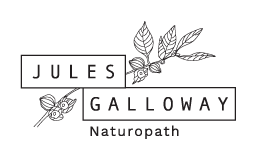CAN I EAT OATS ON A GLUTEN FREE DIET?
It happens every “porridge season.” Every winter I’m inundated by folks who want to eat gluten free, asking if they can eat oats on a gluten free diet.
“Can I eat oats on a gluten free diet?”
“Are oats gluten free?”
“What about gluten free oats at the health food shop? Are they safe for me?”
So I’m going to set the record straight right here. Read on if you’re confused about whether you can eat porridge (or bircher muesli!) on a gluten free diet.
First of all, one of the reasons for all the confusion is that oats are one of those borderline foods. Some people react to them, some don’t. Which makes it essential to take this on a case by case basis, rather than declaring one rule to be correct for everyone.
Oats contain a protein called avenin, which is very similar in its makeup to gluten – I guess you would say it’s kinda like gluten’s not-quite-so-evil cousin. Some sources even say that it IS a form of gluten. However, most people who react to gluten are actually reacting to a protein called gliadin – this is the type of gluten found in wheat. Gliadin is the most likely culprit in gluten allergies and intolerances, and seems to cause the most havoc. Oats are gliadin-free.
If you have coeliac disease however, it would be wise to avoid oats altogether, as some coeliacs react to avenin. If you have coeliac disease, you would be better off making your porridge with quinoa flakes.
So that’s the first point to remember – if you’re on a gluten free diet because you have an intolerance (or have registered a high reading to gluten on an IgG antibody test), then you will probably be ok with oats. YAY! But if you have coeliac disease, or if you are super sensitive to gluten (i.e. you have immediate and intense symptoms), approach with caution.
What about gluten free oats? Why are they labeled gluten free?
One of the biggest issues with oats is that they are often harvested, transported and packaged in an environment that also contains gluten-containing grains like wheat, rye and barley. If you’re sensitive to cross-contamination, it’s best to go for oats which are marked “gluten free.” If you’re super sensitive to gluten and you DO plan to try oats – these are the only ones you should be eating. Gluten free oats still contain avenin though, so again, if you have coeliac disease, be careful here.
The best way to eat oats
Some people, even if they’re not intolerant, have trouble breaking down grains in general. If you’re one of these people and you’re going to eat oats, the trick is to make them as easily digested as possible. This means soaking them in water overnight (and draining off any excess liquid) before making your bircher muesli or porridge. Soaking any grain helps to remove phytates and will make the minerals more readily absorbed by the body. So even if your digestion is fine, doing this step will give you more nutritional bang for your buck, which is always a good thing. If you’re at all concerned about digestibility, I would never recommend you eat your oats uncooked (e.g. in natural muesli).
As with any “borderline” food, it’s wise to add it into the diet gradually – don’t just start having it for breakfast every single day. Try having porridge with almond milk instead of cows’ milk to lessen the amount of potential allergens in the meal. Pay attention to your body – how does it make you feel afterwards? Do you have a tummy ache or have to run to the toilet? Do you feel tired an hour or two later? Tuning into your body is the most important thing you can do here, and your own observation is one of the most powerful tools that you have.
Oats are an awesome anti-stress food. Click here for a list of other helpful foods for stress.


